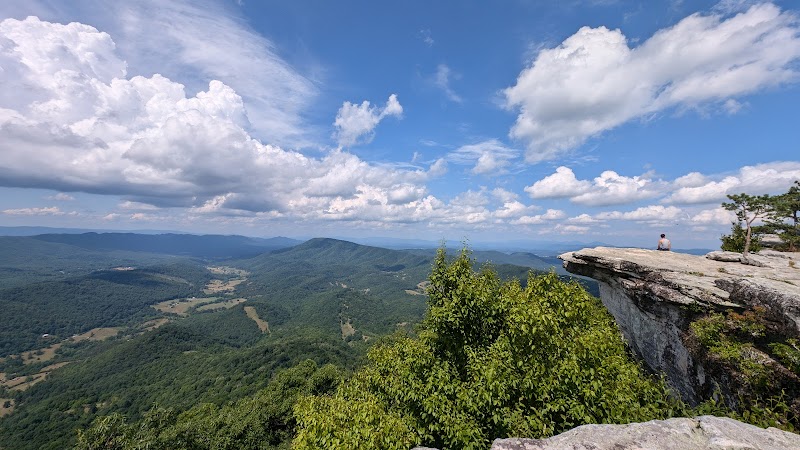
Explore Virginia’s Rappahannock County Farm Tour: A Hands-On Adventure in Sperryville
The Rappahannock County Farm Tour in Sperryville, Virginia, offers a practical and immersive way to discover the working farms, fresh produce, and landscapes of rural Virginia. Whether by foot, bike, or car, this 15-mile journey combines hands-on learning with scenic views, making it perfect for visitors eager to engage with nature and community.
Wear Sturdy Footwear
The terrain varies from gravel farm roads to uneven grassy patches; durable shoes with good traction will keep you comfortable throughout the tour.
Pack Water and Snacks
Farms offer fresh goods, but water stations are rare—carry enough hydration and snacks to stay energized between stops.
Start Early
Begin your tour in the morning to avoid afternoon heat and ensure plenty of daylight to visit all farms and explore at your own pace.
Bring Cash
Some farm vendors prefer cash or have limited card facilities, so carry small bills to purchase fresh produce or crafts.
Explore Virginia’s Rappahannock County Farm Tour: A Hands-On Adventure in Sperryville
The Rappahannock County Farm Tour in Sperryville, Virginia, offers a unique blend of rural adventure and down-to-earth discovery. Spread across a patchwork of family-run farms, this self-guided tour invites visitors to step off the beaten path and engage directly with the land and its stewards. The route covers approximately 15 miles, winding through gently rolling hills and peaceful pastures where you’ll encounter patchworks of wildflower fields and historic barnyards. Expect mostly flat to moderately uneven terrain—gravel roads, dirt paths, and occasional grassy stretches that connect each farm stop.
Each farm on the tour tells a story through its produce, animals, or crafts, making this more than just a scenic drive or walk. You’ll meet growers and makers who share insights on sustainable practices, organic farming, and heritage breeds—transforming curiosity into a practical understanding of local agriculture. The fresh scent of earth and growing things fills the air, while wind carries the gentle hum of bees and calls of songbirds, actively engaged in the pollination that sustains these lands.
Travelers can choose to bike, hike, or drive the circuit. Pedestrians and cyclists should prepare for a 4- to 6-hour excursion depending on stops and pace, with an elevation gain of around 400 feet. Spring and fall bring vivid color shifts as farm fields bloom or prepare for harvest, while summer pulses with buzz and warmth under vast blue skies. The farms dare visitors to engage their senses—tasting ripe berries, feeling the rough husk of freshly harvested corn, or listening to sheep’s protests from fenced meadows.
For a successful visit, bring sturdy, all-terrain footwear to navigate uneven surfaces, sunscreen, and plenty of water as shade is sparse along rural roadsides. Start early to avoid midday heat and maximize daylight for all stops, especially if photographing the rolling farmland or seeking quiet moments with animals. Cell coverage is patchy; download maps or printed guides to stay oriented.
The Rappahannock County Farm Tour isn't a race but an invitation to observe and participate in the rhythms of rural life. It challenges visitors with a hands-on interaction that rewards thoughtfulness and preparation. Whether you’re a casual explorer or someone who thrives on practical engagement with place, this tour offers an approachable yet spirited slice of Virginia’s agricultural heartland.
Nearby Trips
All Adventures
Boat Charters
Water Activities
Adventures near Winchester, Virginia
Discover the unique and memorable adventures that make Winchester, Virginia special.
Frequently Asked Questions
How do I navigate the farm tour route?
The farm tour is self-guided using printed maps or GPS routes provided by the Rappahannock County Tourism Office. Roads are marked clearly but ensure you have offline access or a paper map due to spotty cell service.
Are the farms dog-friendly during the tour?
Most farms request that visitors leave pets at home to protect livestock and crops. Check each farm’s policy beforehand if you plan to bring a dog.
Can I purchase fresh produce directly from farms on the tour?
Yes, many farms sell seasonal fruits, vegetables, honey, and handmade products during the tour. Bring cash, as not all vendors accept cards.
Is the tour suitable for families with children?
Absolutely. The tour offers educational opportunities and space for kids to observe farm animals and learn about agriculture firsthand, but supervise children near animals and uneven terrain.
What wildlife might I encounter during the tour?
Expect to see barn swallows, red-tailed hawks, deer in the fields, and a variety of pollinators including bumblebees and monarch butterflies, especially in spring and summer.
Are there restroom facilities along the tour route?
Public restrooms are limited; some farms provide visitor facilities. Plan accordingly before you start and use available facilities at the initial stops.
Recommended Gear
Sturdy Walking or Hiking Shoes
Protects feet from gravel paths and uneven farm roads, ensuring grip and ankle support.
Water Bottle
Keeps you hydrated through open, sunny stretches with limited drinking water available.
Sun Protection (Hat and Sunscreen)
Shields skin during long afternoon hours spent outdoors on exposed roads and fields.
Portable Map or Guide
Ensures you stay on track through patchy cell signal areas and helps identify farms and points of interest.
Local Insights
Hidden Gems
- "Little Point Overlook for panoramic views of the Blue Ridge Mountains"
- "A quiet trout stream near one farm where the water whispers softly over smooth rocks"
Wildlife
- "Eastern box turtles crossing shaded paths"
- "Wild turkey flocks frequenting open fields at dawn"
History
"Rappahannock County’s farms largely descend from colonial-era family homesteads, maintaining agricultural traditions and heritage crops like heirloom apples and old English sheep breeds."
